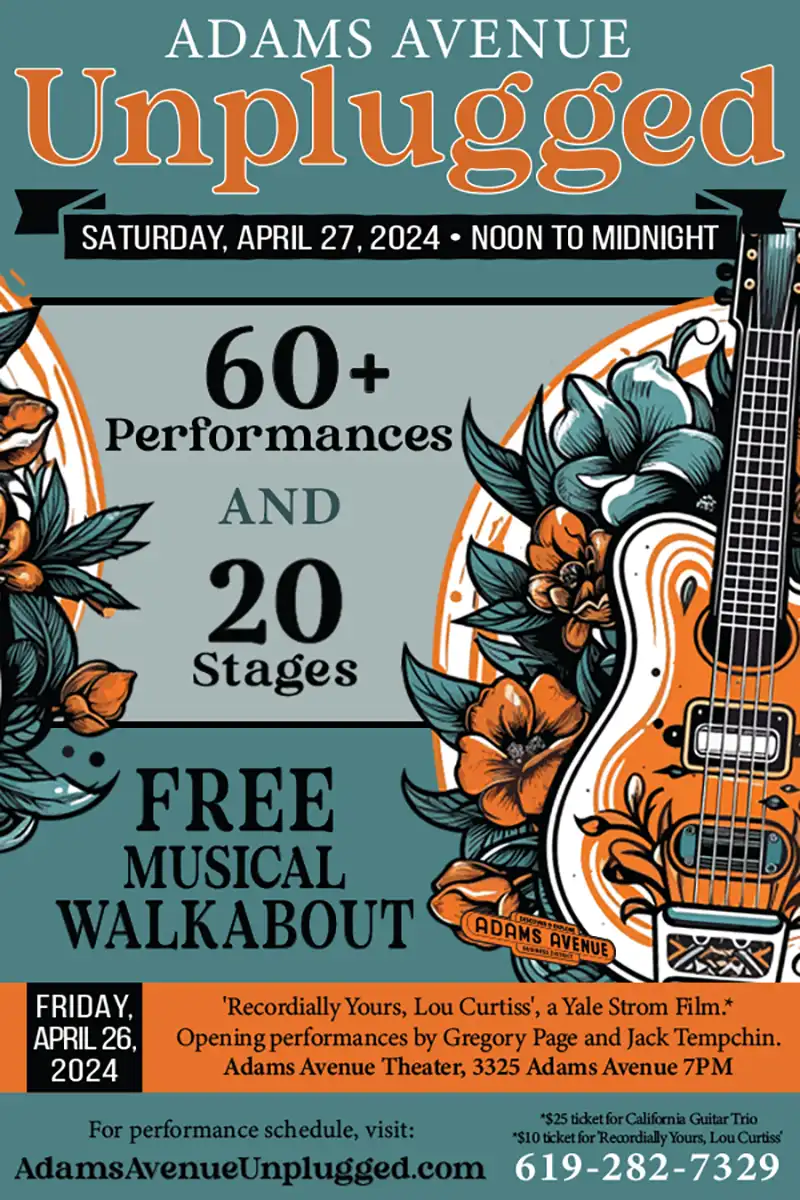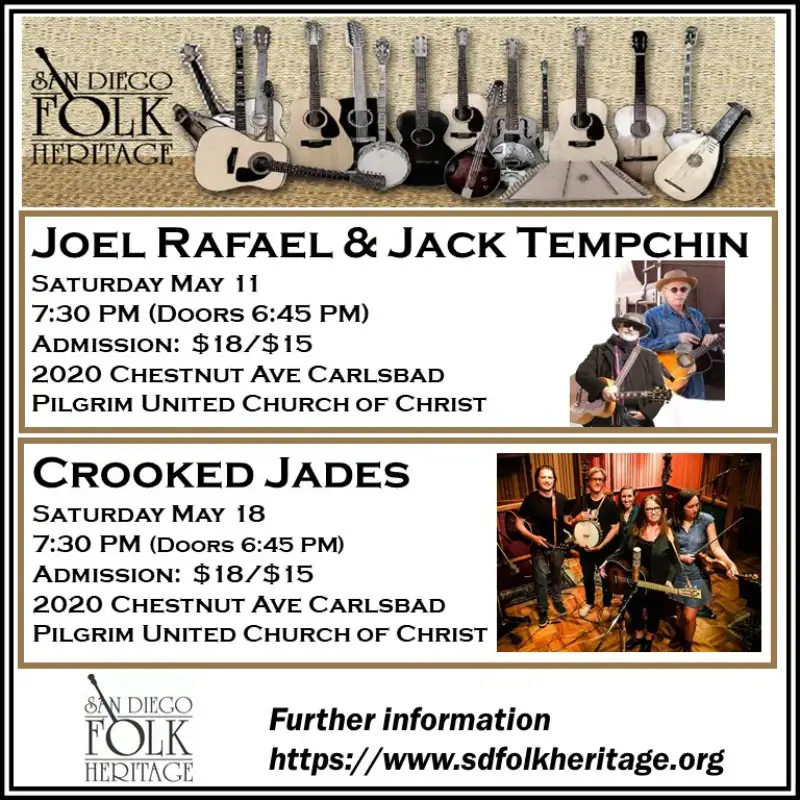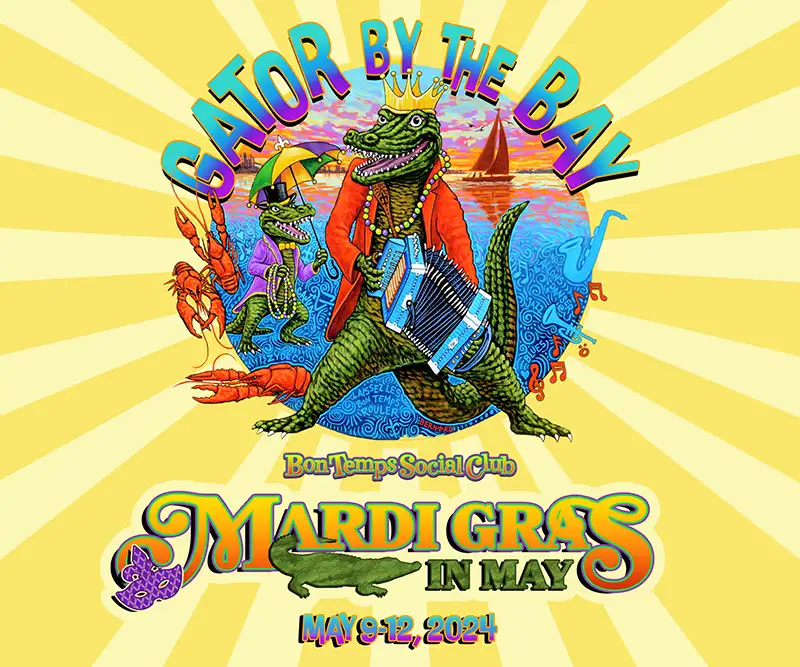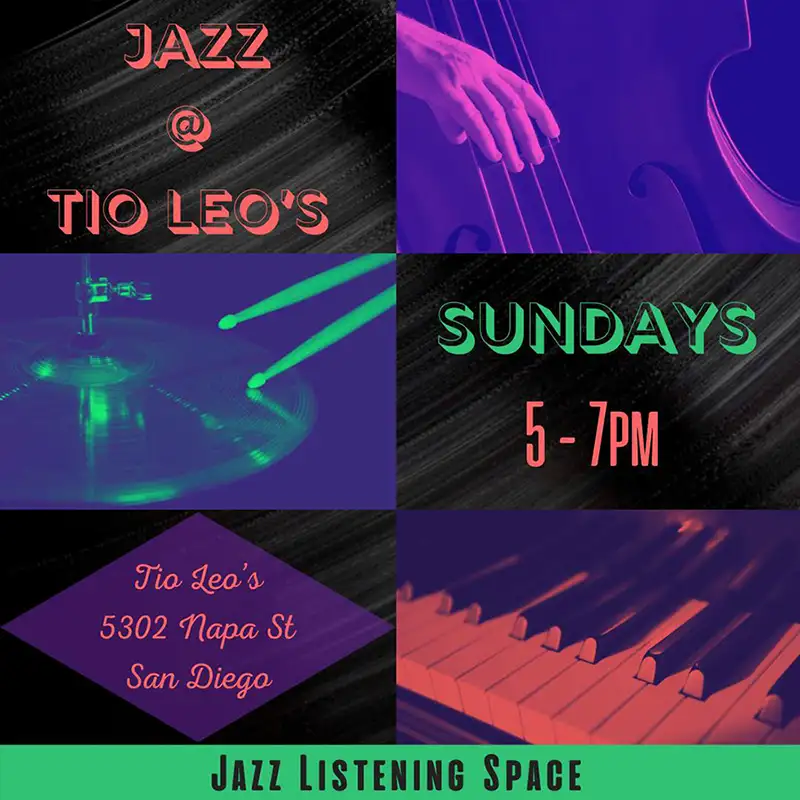Featured Stories
Inside the Song: Thoughts from Some of San Diego’s Most Gifted Writers
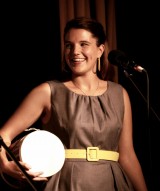
Lindsay White. Photo by Dennis Andersen.
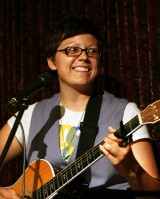
Veronica May. Photo by Dennis Andersen.
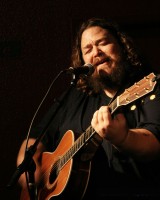
Jeff Berkley. Photo by Dennis Andersen.
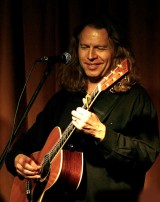
Calman Hart. Photo by Dennis Andersen.
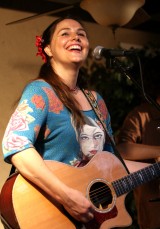
Sara Petite. Photo by Dennis Andersen.
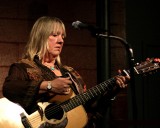
Coco Kallis. Photo by Dennis Andersen.
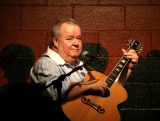
Jeffrey Joe Morin. Photo by Dennis Andersen.
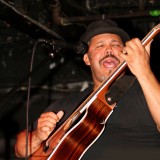
Carlos Olmeda. Photo Dennis Andersen.
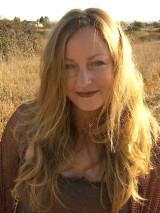
Cathryn Beeks
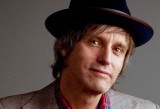
Steve Poltz
With Berkley Hart, Gregory Page, The Lovebirds, Sara Petite, Coco Kallis, Carlos Olmeda, and Catherine Beeks (with cameos from Jeffrey Joe Morin and Joe Rathburn).
“I’ll compare myself to a cup of coffee. Is there a crack in the mug? What kind of coffee is it? I’ll sketch out on paper a list of things or ways I’m similar.” — Lindsay White
“My songs have a romantic perspective: how can I survive and not die as an individual?” — Carlos Olmeda
“In Nashville, they have guys running around co-writing to come up with hits. It takes seven guys to write a crappy song. I can write a crappy song all by myself.”— Gregory Page
“There’s part of me that’s still a little girl. I get to be that on stage.” — Sara Petite
“I give myself permission to write songs that no one will ever hear, ’cause that gives me the courage to write bad or crass songs. I end up playing them out anyway.” — Steve Poltz
“Some songs won’t go away. They just keep repeating themselves in my head until I write them down.” — Coco Kallis
“Songs are overrated. You didn’t paint the Sistine Chapel.” — Lilla Beagle
How are songs written? Where do the ideas come from? Do writers work on a schedule? Are there certain tools they use, like rhyming dictionaries or toe-nail clippers? Do they write songs that are too personal to ever play out? Does anyone ever cry when they write? (“Only when I realize that this one stinks!” — Lilla Beagle.)
For purposes of discussion, I lump songwriters into two categories: those who use the Nashville system (“method writing”), and those who “free write.” Method writers usually start with a song title or a “hook” and build the song from there. It’s structured and formulaic. Free writing is just what it sounds like; you might start with a melody or not, but you write down whatever comes into your head and let it shape itself.
Interviewing San Diego writers for this article, I discovered there is a third way, which Gregory Page explains later. Every writer talked about editing. Some of them talked about editing a lot.
Final thought on process: “method writing” has an industrial sound to it. Like songs are made in a factory. The name might carry a negative connotation. Not true. It is a craft, like oil painting or woodworking and thousands of great songs have been written that way. In fact, most “free writers” will use the method from time to time.
HOW DO YOU WRITE?
   Neither Lindsay White or Veronica May of The Lovebirds write on a schedule, and the process changes.
Lindsay: It depends on whether I’m writing solo or with V. As a solo it’s like therapy. It’s working out my emotions, which are usually dark. With Veronica it’s fun. We can write a love song in 20 minutes. Alone it can take days. I have the melody first 90 percent of the time.
Veronica: I generally write from heartache or pain. It’s definitely therapy for me. And I have to perform them. Both the act of writing and singing works it out of me.
Both of them believe Lindsay has the discipline, the writing skills, and the editing chops to make it as a staff writer for a publisher. Lindsay says she would love that. Other writers felt that would ruin it for them.
Jeff Berkley and Calman Hart of Berkley Hart
Jeff: Calman could make it in Nashville easy. He’s got it all.
Calman: I would love to write all the time, but I think it would take the joy out of it if I had to or if I had to make money at it. But I would rather write than perform… sometimes I’ll write a song and discover I’m sweating — the energy, the excitement of it. I think that’s why people paint who never sell their paintings: it’s the exhilaration.
Jeff: We don’t make time to write; we just happen to be hanging out and one of us has an idea and we shoot it out. Except once, on the song “Come on In,” when we didn’t have an opening song for a show; it’s on the second album.
Calman: We send stuff back and forth. On “Misery,” Jeff had this really cool guitar part and we emailed lyrics back and forth. Jeff came in once with a title: “You Put the Loss in Las Vegas.” [Final title is “Las Vegas” from the CD of the same name.]
Jeff: Calman took off with that one. That’s how I learned from Calman. I learned you could make up stuff and write about it. That’s his specialty. You could take his songs and write a screenplay to them.
Calman: Ideas come when the mind wanders, when I’m doing some repetitive task. That one [“Rain Barrel Song”] came when I was on a cruise ship, staring out at the ocean all day. The whole thing came at once. I may have been reading The Grapes of Wrath or something similar. The hard part is cramming the whole story into a song… [other writers] write an “I love you verse” and then agonize over how to say the same thing in two more verses. I write a story and agonize over how to shrink it into three minutes. I’m just too lazy to write a novel.
I’ll build you a barrel to catch the rain
To wash out the dust of the Kansas plain
I swear you’ll never have to cut your hair again
If it’s the last thing I do on this earthly plane
I’ll give you a barrel of rain
– [Barrel of Rain, Calman Hart]
Sara Petite saw a pregnant woman wearing a tee shirt that said “It All Started With a Little Kiss”; hence, the song. Other ideas come from “hearing somebody’s conversation at work, or books. “Scarlet Letter” came from the book. I thought that all of us have some kind of scarlet letter.
“Ashes” is about what John [her late husband] would say to everybody now. “Drinking to Remember” is what I did for a while. It wasn’t a good time for me.
Sometimes you think a song isn’t good enough or that it’s too personal to play out. “Shouldn’t Be Doing This” began with a riff, then became suggestive. I wasn’t going to use it, but my friends… [loved it].”
You pull me close
I can feel your breath
Warm lips
Move up my neck
You said good-bye
Now you’re here again
We shouldn’t be doing this
[“Shouldn’t Be Doing This” from the CD Doghouse Rose]
Do the words come first or the melody? I don’t know…. Seems like all at once. But I always think of songs at the wrong time, when at work or driving.
My new songs are coming from my current situation. It’s hard [to write] because it’s personal. Although it’s easy to write when you have to say goodbye to somebody.
Coco Kallis was driving to perform at the Scottish Highland Games when the song “Culloden” came, unbidden and unwelcome. “The first words I heard were horrible — about a guy dying on a battlefield. I didn’t want to write it. I ignored it. I actually said, out loud, I don’t want to write this. I don’t want to listen. But it wouldn’t go away. I finally pulled over and wrote it down.
“I usually hear the words and melody together in my head and I have to make myself really stop and listen. If it’s a song that really wants to be written, it won’t go away, but I have to listen really close to get more of it. For me, I can’t write it down or sing it out loud until I have the whole song or I’ll corrupt it by trying to shape it. Especially with the melody.
“I also just sit and start to write. Then I’ll go back and shape it into a song. With ‘Someone to Ride the River With’ I was stuck until I researched women of the Old West who went on cattle drives.
“Sometimes you have to feed that muse.”
Gregory Page [For me the process] is solitary, mysterious. I write when I’m away from San Diego. Not that I don’t write songs here, but it’s new sights, new sounds. My last three albums were written while on tour in Australia.
[But] I stopped writing songs. I write albums. It’s a positively negative approach.”
What’s the negative? “The villain. There’s always a villain, even if it’s just something that takes the love away.”
He went on to explain that instead of recording a collection of songs, he now writes around a theme. His new thematic project is titled “Shine Shine Shine,” recorded at Studio West with a 22-piece big band, which will be released this spring. His insight into the songwriting experience was vast and filled with keepers:
“Throw away all your music, your whole CD collection. Don’t be influenced by others.
“At first all I wanted to be was James Taylor and everything I wrote sounded like him. Then I wanted to be Neil Young. Then I wanted to be Paul Simon. Then I wanted to be Don McLean. Then I wanted to be… all my life I wanted to be someone else. I lost a lot of who I am by trying to be someone I’m not. Now I don’t listen to music; I don’t read the charts; I don’t pay any attention to anything else except who I am.”
Best advice? “Don’t be too hard on yourself while you’re writing. “If I can predict the next line [of your song] then I don’t have any more attention for it and you’re wasting your life. Leave the great songwriting to great songwriters.
“On the other hand, everybody needs confidence and who am I to say you won’t [grow to] be the next great songwriter? But I wouldn’t produce it for them. I’d send them to someone who only cares about the money.”
Heartbeat keeps you on your feet
Eyes that are open
Recording an ocean of memories
[“Ocean of Memories” — Gregory Page]
“I’m always suspicious. If a song comes too quickly, I think ‘Have I rewritten something else?’ If a song comes too slow, I’m suspicious that it’s uninspired. So there’s this whole feeling of suspicion. A song has to come at the right time in a way. By the end of the day there’s this ‘it didn’t come too quick, it didn’t come too slow,’ you know? I’m always trying to straddle that. If I’m rewriting the song the next day and the mojo’s gone and the inspiration’s gone, then I’m suspicious of it. It doesn’t mean that it’s a bad song. But I’ve also written a song really quickly and it’s [bleeped] across the universe! And, you know, it’s because I’ve written a Beatles’ song!
“When I discovered that you can lie, that you can embellish, it was like the world exploding.”
Jeffrey Joe Morin was on my list of songwriters to contact and I’m ashamed to say I dropped the ball on that one. He claims he doesn’t write much, but the half dozen songs I’ve heard of his rank up there with Randy Newman, Lyle Lovett, and the Tin Pan Alley masters I’ve always admired. Gregory Page lists Jeffrey as his favorite and the best San Diego songwriter ever. Luckily for us, he’s finishing his debut album, produced by Jeff Berkley, this spring.
Fishnet Hose. M’baby got no fishnet hose
She don’t got no shiny clothes
She don’t got no powdered nose
M’baby got no little black dress
She ain’t no damsel in distress
She got no cantilevered chest
But man, she sho got me.
[“Big Red Lips,” Tugboat Music 2008]
His voice is divine, his delivery is impeccable, and he’s one of those guitarists that make grotesque fingering positions look graceful and effortless. While I didn’t formally interview him for this article I have talked to him about songwriting. He said it came really hard for him and he has to work it and work it and work it. Perfectionism gets a bad rap and it goes against most writing teachers’ rules, but it works for Jeffrey Joe. For this song I didn’t have to ask him what the inspiration was: he worships his wife and makes no secret about it.
Carlos Olmeda Gregory Page brought Carlos to our breakfast interview. He produced Carlos’ first recording in 1981.
Art is the playground of the very rich or the very poor because the rest of us are too busy working. We’re too tired to create.
For me it’s not fun. Fun is when I go to the beach. The high? Yes, it’s incredible. But it’s not “look how great I am.” It’s different than fun.
[Songwriting is] world therapy. You can hear my co-dependence in them.
I want to write — smart-alecky, angry, everything. I don’t want to be one way; it’s just another hour of the Carlos Olmeda reality.”
You who are summoned from your homes
Who are paid in full now
To Caesar what is owed
Let me be the first now to shake your hand
And welcome you home again.
[“Home Again,” Carlos’ song to returning soldiers]
[But] you can’t teach [new songwriters] anything useful. They might memorize but they won’t really listen. They have to learn from their own experience.
Carlos is working on a 2012 release.
Catherine Beeks has probably heard more songwriters than any breathing person in San Diego County. In addition to hosting a radio show that spotlights local music on KPRI every Sunday at 8pm, she runs several open mics in San Diego and hosts “The Game,” where songwriters are given a title and invited to write and perform a song to it.
She’s a songwriter herself who usually starts with the music: “The music tells me what the song is going to be about.” But I was most interested in whether she had any favorite memories from all the exposure to the really great and horribly bad songs she hears.”
For the Game “I used to give out three titles for writers to choose from. Joe Rathburn came once and he’d written a song about Katrina [the New Orleans tragic hurricane]. Actually, he’d written three songs, one to each title, and he’d made it a trilogy. The first was about a guy who’d lost his home. The second was about the same guy but from the reporter’s perspective. The third was from a woman’s point of view that was helping out at a homeless shelter where the guy was. It was amazing. Each song had a different musical style and structure.”
Steve Poltz I could sum up most of Steve Poltz’s insights into one word: learn.
“I don’t really have a process, but I always think you need a deadline ’cause then you get it done. It really works for me.
“I take myself out of my comfort zone, maybe tune the guitar down two whole steps, or write one on the piano.”
Where do ideas come from? “I don’t know where they come from. Sometimes I play the guitar for an hour or two and come up with a melody. Then I start humming it. Then some words come. Then the ideas come…
“…sometimes I write the whole story and then it’s fun to find a melody.
“Sometimes I sit down with somebody and start writing when they’re not expecting it, ’cause then you take them by surprise and they’re not uptight about it. “Me and Eddie Vedder,” a hilarious song I wrote with a guy over breakfast. He said, ‘I don’t write songs,’ and I said, ‘I know.’ I’d say something and write it down on the back of the place mat, then he’d say something and we wrote the song.
“A.J. Croce and I do it Nashville style. We’ll pick a time and show up with ideas and we always finish them. Some people you just can’t [write with] but with some people it’s magic. I think I’m good at it because I make them feel comfortable. And I listen and don’t force my idea: I let them take another direction if that’s the way it happens. It’s really fun.
“My favorite thing about it is creating something that didn’t exist earlier in the day.
“For ‘Murder Isn’t Funny’ I just took a bunch of words that never get used in songs. I was really into learning new words.
“Buddy Blue from the Beat Farmers [who produced the Rugburns’ first album] pulled me aside one day. He said, ‘Some people are going to call you a genius; some people are going to call you an idiot. Don’t listen to any of them. You’re a songwriter; you’re no better than a plumber. Just work on your craft and be the best plumber you can be.’
“Nashville Music: politically correct, bland, predictable music. I ignore that. I think the raw, unpolished music has a vibration to it. It vibrates in your brain.
“You gotta get out and play to hostile audiences. Bad stage, bad sound, and just make it fun.
“Some songs can make you money. They are the providers. Some songs are just for you. That song about you can’t find a parking space. No good. But it might lead you to that next song and you’re exercising one of your three muscles: writing, performing, and recording. Performing tells you if you got something. Recording shows you how the song can change, how it can be something else.”
My conversations with all these writers reaped far more ideas, tips, and insights than I have room for — enough for a small novel. But I’ll leave you with some of the things they each told me when I asked for the best advice they were ever given or could give.
Catherine Beeks: My dad. He said, “Write stuff that will make people feel good.” At the time I was writing dark stuff. And that’s when I first thought about the listener’s perspective. Dave Howard told me to write like you talk. Make it conversational. Don’t make up words like “hey baby hey baby hey baby.”
Calman Hart’s advice was repeated by every writer in some way or another, but I thought he said it best: “Don’t edit until you have something to edit.”
Veronica May: I before E.
Lindsay White: Get to the point. (Her dad was an English teacher)
Sara Petite: Keep doing what you’re doing. Don’t try to write for anybody.
Gregory Page: Throw away the TV. (want to triple your output?)
Carlos Olmeda: I make myself sit down and say to myself, “Carlos, you need to play some chords.”
Steve Poltz: Learn a lot of cover songs that are really intense and involve a lot of chord changes you don’t know that are above your level. Old standards or whatever. It will soak into your brain. Learn the ones that are really well written. It will all come out later. That’s one of the most important things.
Jeff Berkley: Write.


